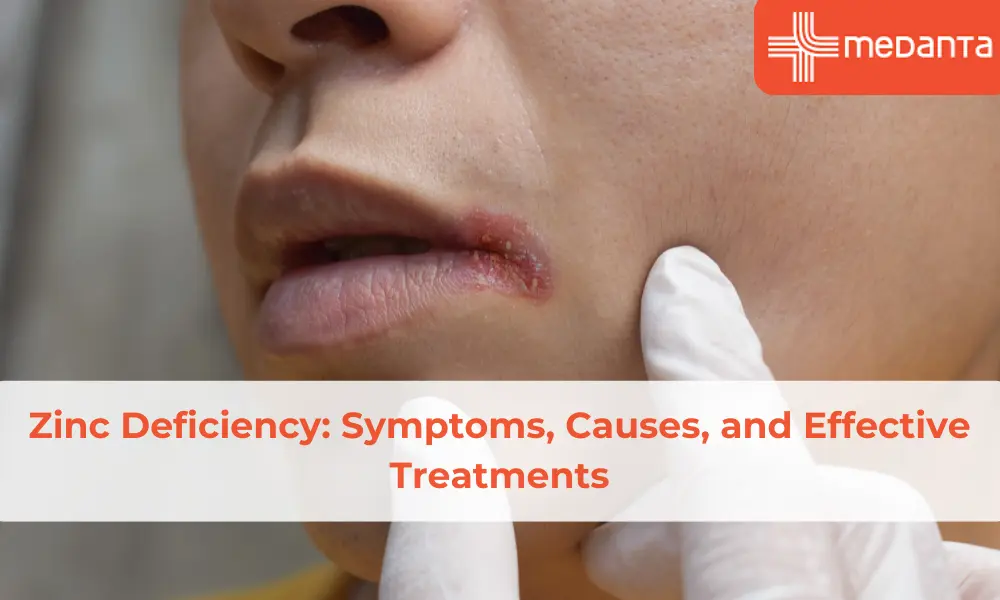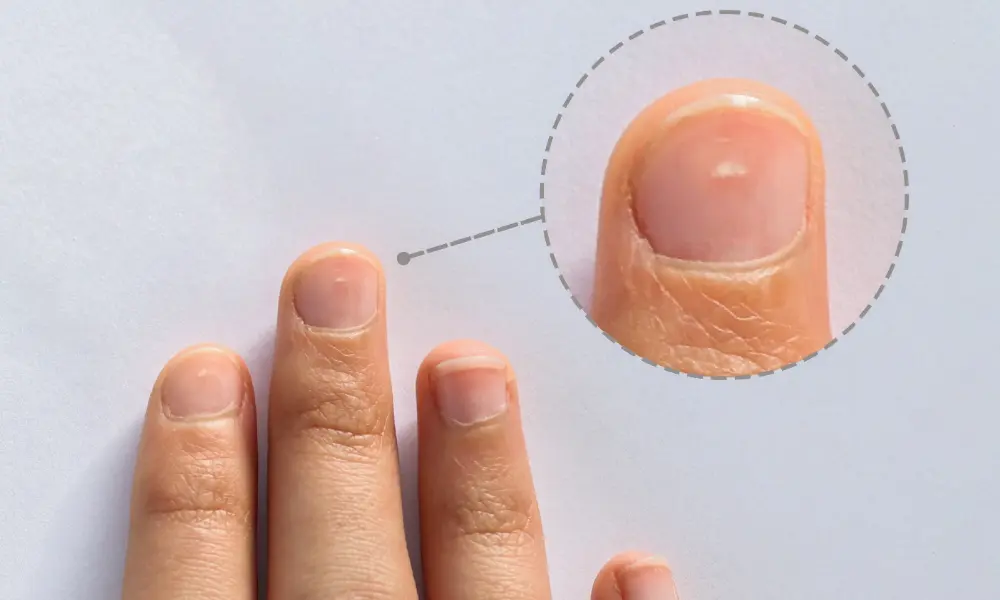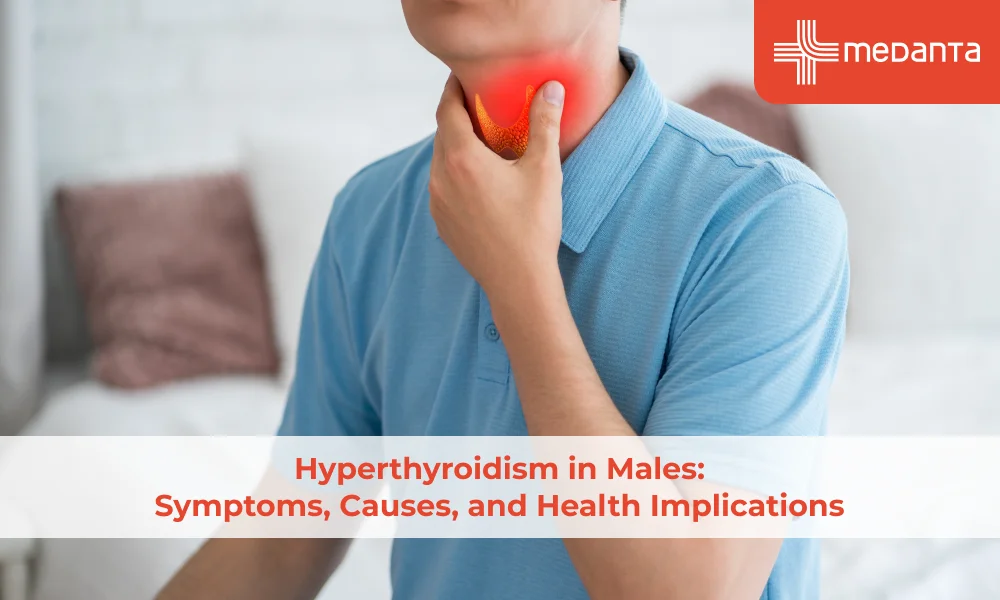Zinc Deficiency: Symptoms, Causes, and Effective Treatments

TABLE OF CONTENTS
Millions of people worldwide do not get enough zinc in their diet and this problem hits developing countries the hardest. The human body needs this vital mineral to stay healthy.
The body shows clear signs at the time it does not have enough zinc to function properly. People might notice skin rashes, hair loss, changes in their nails and babies might get diarrhoea. The body's immune system becomes weak, appetite drops, taste changes and wounds take longer to heal when zinc levels are low.
This article explains what zinc deficiency is, its causes and how to improve your zinc levels.
What is Zinc Deficiency?
Zinc deficiency shows up in different ways based on how severe it is. Older adults often experience milder forms. This essential mineral shortage can be hard to spot, yet it affects multiple body systems at once. People can become zinc deficient for several reasons. Their diet might not provide enough zinc, or their body might not absorb this mineral well.
Zinc Deficiency Symptoms
Your body sends various signals when zinc levels drop too low. Watch for these signs:
Wounds take longer to heal
You get sick more often
Your hair falls out
Skin problems develop
Food tastes different and smells seem off
Babies might get diarrhoea
You feel tired and don't want to eat
Zinc Deficiency Causes
Low zinc levels happen for several reasons:
Not eating enough foods rich in zinc
Health conditions like Crohn's disease or celiac disease that prevent absorption
Pregnancy increases the body's zinc needs
Some conditions like burns or kidney disease make you lose more zinc
Zn Deficiency Diseases and Related Conditions

Condition | Relationship with Zinc Deficiency |
Acrodermatitis enteropathica | Genetic disorder causing zinc malabsorption |
15-40% have zinc deficiency | |
Sickle cell disease | 30-50% show low zinc status |
Type 2 diabetes | Can increase zinc requirements |
How to Increase Zinc in the Body Naturally
The best way to get more zinc is through food. Add these to your diet:
Poultry and red meat
Shellfish like oysters
Nuts like almonds and cashews
Legumes like chickpeas, lentils, and beans
Seeds like hemp, pumpkin, and sesame seeds
Dairy items such as cheese and milk
Eggs
Whole grains like rice, quinoa, wheat and oats
Dark chocolate
Zinc Deficiency Treatment Options
Doctors usually prescribe zinc supplements:
For children - 1-3 mg/kg daily
For adults - 20-40 mg daily
Most people feel better within 1-2 weeks of taking the right amount. Taking more than 50 mg daily might upset your stomach.
Prevention Tips for Healthy Zinc Levels
You need proactive dietary and lifestyle choices to maintain healthy zinc levels. A balanced diet with zinc-rich foods helps most people avoid zinc deficiency if they keep taking them.
The quickest way to get enough zinc is through foods that naturally contain it. Red meat, poultry, shellfish (especially oysters), and dairy products give you zinc that's easy to absorb. Legumes, nuts, seeds and whole grains are good alternatives if you follow plant-based diets.
Some food preparation methods can improve zinc absorption by a lot. Your body absorbs zinc better when you soak, sprout, and ferment legumes and grains because this reduces phytate levels—compounds that block zinc absorption. Your body also absorbs more zinc when you combine zinc-rich foods with vitamin C sources.
Additional prevention strategies might be needed if you have higher risk factors like pregnancy, young age, or digestive disorders. So doctors often suggest zinc supplements when diet changes alone don't work.
Your daily zinc needs change based on age and gender. Adult males need 11 mg while adult females need 8 mg. Your total zinc intake from all sources should not exceed 40 mg daily since too much zinc can cause side effects.
Your prevention strategy might include supplements, fortified foods, or biofortified products based on your specific needs. High-risk groups should watch for deficiency symptoms regularly.
Prevention Tips for Healthy Zinc Levels
You need proactive dietary and lifestyle choices to maintain healthy zinc levels. A balanced diet with zinc-rich foods helps most people avoid zinc deficiency if they keep taking them.
The quickest way to get enough zinc is through foods that naturally contain it. Red meat, poultry, shellfish (especially oysters), and dairy products give you zinc that's easy to absorb. Legumes, nuts, seeds and whole grains are good alternatives if you follow plant-based diets.
Some food preparation methods can improve zinc absorption by a lot. Your body absorbs zinc better when you soak, sprout, and ferment legumes and grains because this reduces phytate levels—compounds that block zinc absorption. Your body also absorbs more zinc when you combine zinc-rich foods with vitamin C sources.
Additional prevention strategies might be needed if you have higher risk factors like pregnancy, young age, or digestive disorders. So doctors often suggest zinc supplements when diet changes alone don't work.
Your daily zinc needs change based on age and gender. Adult males need 11 mg while adult females need 8 mg. Your total zinc intake from all sources should not exceed 40 mg daily since too much zinc can cause side effects.
Your prevention strategy might include supplements, fortified foods, or biofortified products based on your specific needs. High-risk groups should watch for deficiency symptoms regularly.
Conclusion
Zinc plays a significant part in our health, and billions of people worldwide don't get enough of this vital mineral. Your body shows warning signs of zinc shortage through skin problems, weak immunity, and slow healing. People on restricted diets or with specific health conditions are at higher risk.
The good news is that simple changes can fix most cases. Your first defence against deficiency should be zinc-rich foods like oysters, red meat, and nuts in daily meals. Supplements are a quick solution when diet changes don't work or aren't enough.
Note that balance is key. Low zinc causes health issues, but too much leads to unwanted effects. Understanding your risk factors and making smart food choices will keep your zinc levels optimal throughout life.
FAQs
What are the first signs of zinc deficiency?
The body sends early warning signals like unexpected weight loss and changes in taste and smell. People feel less alert. Wounds take longer to heal than usual.
How does zinc deficiency affect the skin?
Skin problems show up as eczema-like rashes that standard treatments won't fix. On top of that, it leads to open sores and slower healing after injuries.
Hair might start falling out and nails can change too.
Which diseases are linked to zinc deficiency?
Low zinc levels connect to several health conditions:
Acrodermatitis enteropathica (genetic disorder affecting zinc absorption)
Inflammatory bowel diseases (15-40% have zinc deficiency)
Leprosy and leishmaniasis
Age-related macular degeneration
What causes low zinc levels in the body?
Main reasons include:
Not eating enough meat and protein-rich foods
Eating foods with phytates that block absorption
Health conditions like kidney disease, diabetes, and liver disorders
Some medications including diuretics
Breastfed babies older than 6 months might develop a deficiency too.
How can I increase zinc naturally?
Your best sources are red meat, poultry, oysters, seeds, wild rice, and baked beans. People who don't eat meat should load up on cashews, peas, and almonds.
Is zinc supplementation safe long-term?
Adults can safely take zinc as long as they stay under 50mg daily. Taking too much zinc (over 150mg daily) can weaken your immune system and affect copper absorption. The supplements can interact with some medications like antibiotics and diuretics.
What is the best treatment for zinc deficiency?
Most people recover within 72 hours through a mix of dietary changes and temporary supplements. Most adults need 20-40mg of elemental zinc daily and see improvement in 1-2 weeks. People with inherited deficiencies might need supplements long-term.






